Publications
Articles, publications, books, tools and multimedia features from the U.S. Institute of Peace provide the latest news, analysis, research findings, practitioner guides and reports, all related to the conflict zones and issues that are at the center of the Institute’s work to prevent and reduce violent conflict.
Conflict Prevention Strategies in the 21st Century
The threats and opportunities of the 21st century demand that increased attention be paid to practical questions about how to design and implement effective prevention strategies—beyond continual calls to "act early," instill a "culture of prevention," and, above all, mobilize "political will." To this end, USIP is currently developing intellectual capital on evidence-based prevention, early warning, and the prevention of mass atrocities.
Managing Political Transitions in Africa
Political transitions have often served as triggers of violence. This initiative aims to increase the capacity of key stakeholders to identify these triggers during political transitions, to build positive relationships among civil society, policymakers, and regional and international organizations, and to contribute to the academic and policy literature on peaceful political transitions in Africa.
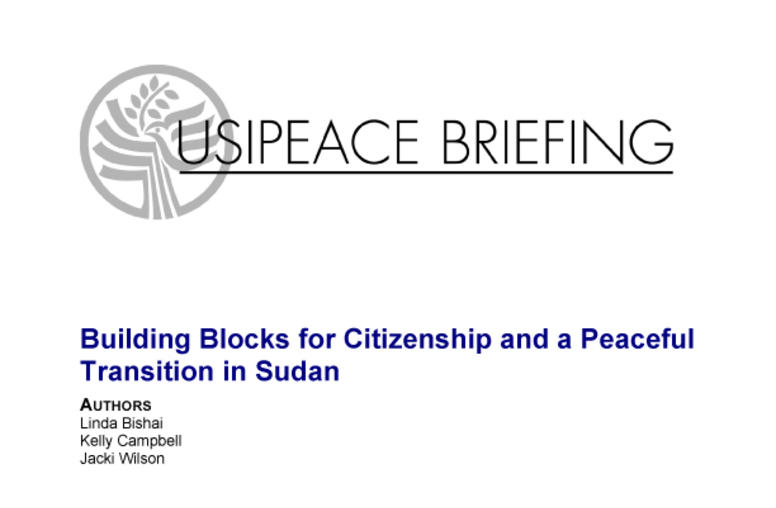
Building Blocks for Citizenship and a Peaceful Transition in Sudan
Sudan’s upcoming elections in 2009 raise hopes and concerns for the country’s future. According to the Comprehensive Peace Agreement (CPA), signed in 2005 between the ruling National Congress Party (NCP) and the Sudan People’s Liberation Movement (SPLM), Sudan is scheduled to hold national and state level elections in 2009.
On the Issues: Syria
The recent war in Gaza has again underscored the tensions involved in brokering sustainable peace in the Middle East. USIP has actively explored the critical role neighboring countries in the Middle East play in the success of creating peace throughout the region. In this "On the Issues," USIP presents a collection of resources and tools about the role of Syria in peacebuilding efforts. Building upon the foundation started in 2005 with the Syrian Working Group, USIP has held a number of recen...
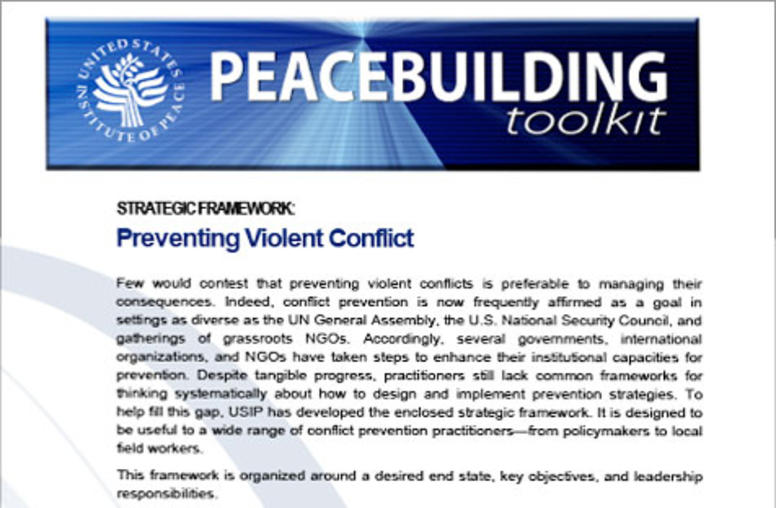
Conflict Prevention - A Strategic Framework
This strategic framework, one in a series of peacebuilding frameworks being developed by USIP, provides a sophisticated, but easily understandable way of conceptualizing conflict prevention. The framework is organized around a desired end state of "stable peace." The core of the framework is found in the leadership responsibilities and key objectives. The key objectives are divided into three broad, potentially complementary preventive strategies—mitigate global risks, mitigate societal risks...
Iraq, its Neighbors, and the Obama Administration: Syrian and Saudi Perspectives
Since 2004, USIP's "Iraq and its Neighbors" initiative has sponsored track II dialogues and ongoing research on relations between Iraq and its six immediate neighbors. As part of this work, the Institute--in partnership with the Stimson Center--sponsored a bipartisan, independent, and unofficial Study Mission to Syria and Saudi Arabia in mid-January 2009. The delegation met with a wide variety of leading political figures, businesspeople, NGOs and foreign policy experts in both countries, inc...
Preventing Genocide: A Blueprint for U.S. Policymakers
The Genocide Prevention Task Force, co-chaired by former Secretary of State Madeleine K. Albright and former Secretary of Defense William S. Cohen, was jointly convened by the United States Holocaust Memorial Museum, The American Academy of Diplomacy and the United States Institute of Peace. Its final report, Preventing Genocide: A Blueprint for U.S. Policymakers, offers practical recommendations on how to prevent genocide and mass atrocities. It was released in December 2008.
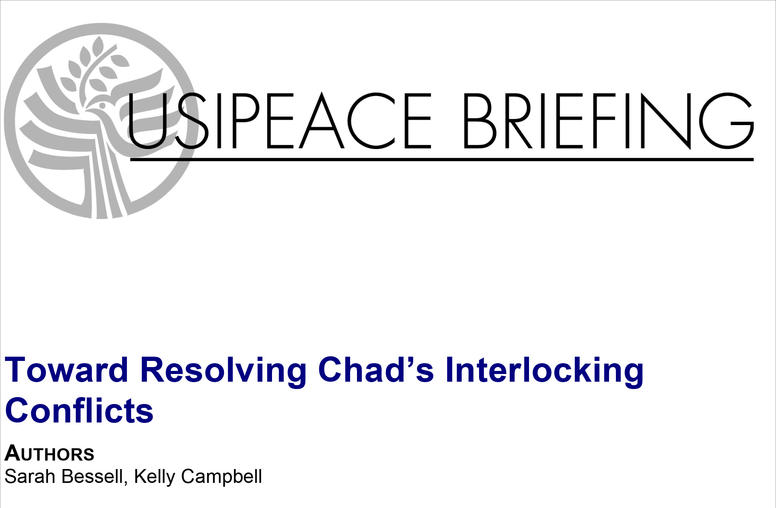
Toward Resolving Chad’s Interlocking Conflicts
The fragility of the Chadian government, as well as the fragmentation among Chadian civil society, political parties, and rebel movements, poses significant challenges that Chadian civil society, regional governments, African institutions and the international community must address with a coordinated strategy. Although the situation in the country is often examined through the lens of the Darfur crisis, several internal factors drive the instability in Chad and its regional actions.
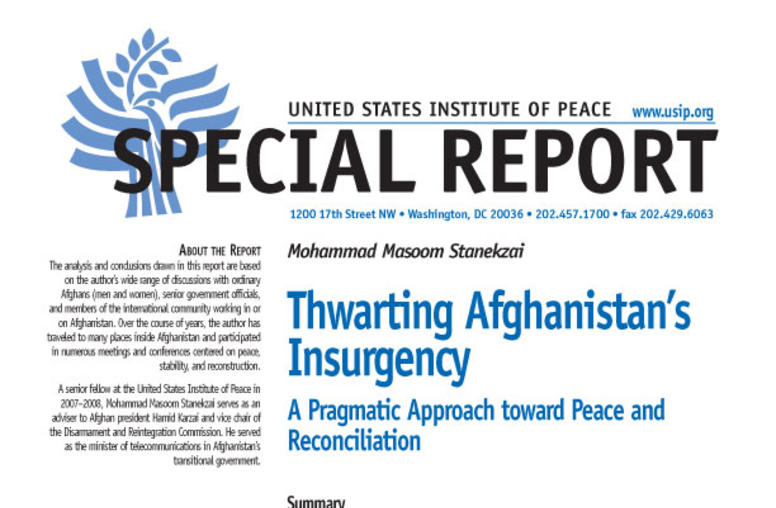
Thwarting Afghanistan’s Insurgency: A Pragmatic Approach toward Peace and Reconciliation
Afghanistan is in a crucial phase of transition. In this report, USIP's first Afghanistan fellow Masoom Stanekzai, who has interviewed a broad spectrum of Afghan senior government officials, members of the international community, and ordinary citizens in the country, shares his recommendations for a pragmatic approach toward peace and reconciliation.
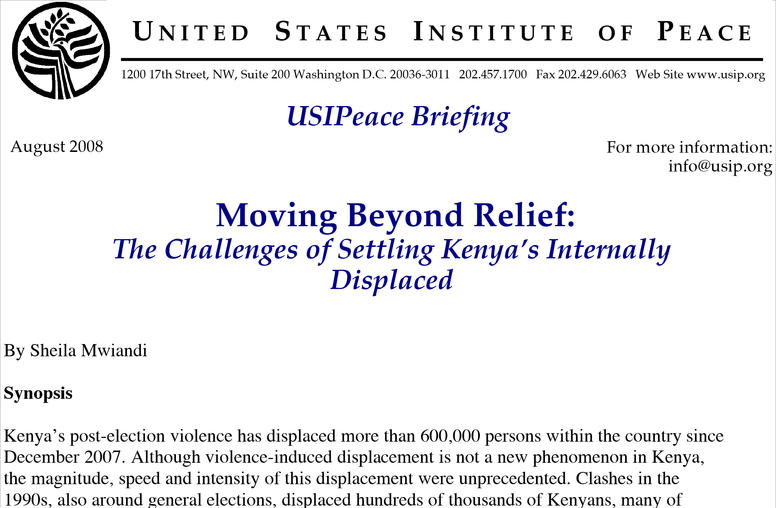
Moving Beyond Relief: The Challenges of Settling Kenya's Internally Displaced
This briefing by Sheila Mwiandi explores various dimensions of Kenya's post-election IDP problems, including elections-related issues prior to 2008, challenges to relocating IDPs and strategies for improving the situation.